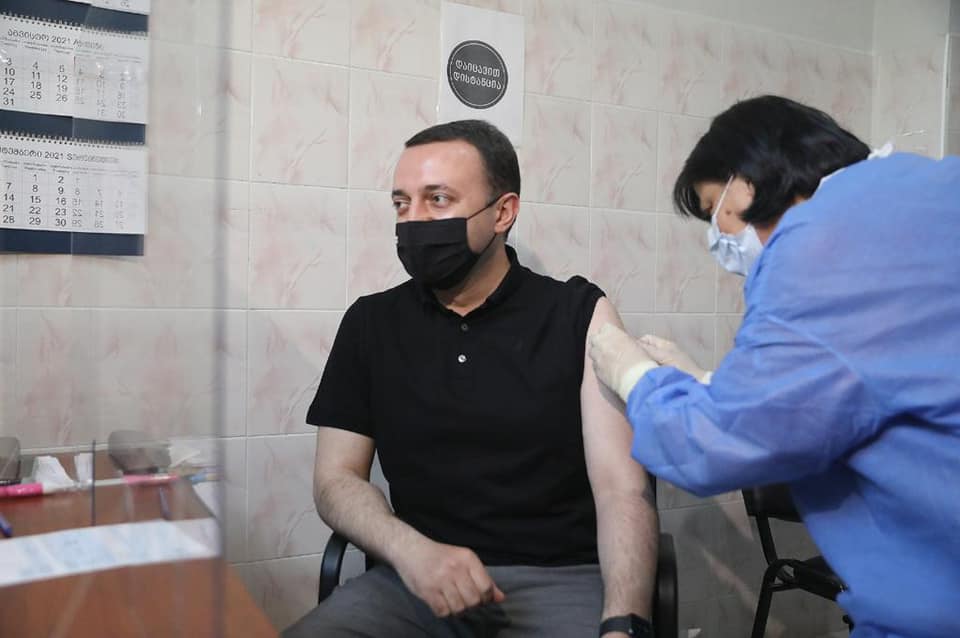Georgian Dream dismiss Public Defender as ‘political activist’ for suggesting election delay over pandemic

Georgia’s ruling Georgian Dream party has rejected delaying the date of municipal elections and with some criticising the country’s Public Defender as a ‘political activist’, for making such a suggestion.
On 23 August, Public Defender Nino Lomjaria lambasted Georgian authorities for relaxing anti-COVID-19 regulations earlier this summer and called on the authorities and political groups to start discussing delaying municipal elections, currently scheduled for 2 October.
Georgia is currently in its worst wave of tehe pandemic yet, with nearly 60,000 active cases. As of 24 August, Georgian health authorities accounted for 6,891 deaths by COVID-19 since the start of the pandemic, including 1,038 fatalities this month so far.
The fatality rate in Georgia currently stands at 1.32% and the country has 94 deaths per million a week, the single worst rate in the world.
The following day, several Georgian Dream MPs dismissed Lomjaria’s suggestion.
‘The Public Defender, like many political activists that present themselves as an independent [party], has turned into an outside speaker voicing the interests of the United National Movement’, Vice Speaker Giorgi Volski told pro-government TV channel PosTV on 24 August.
The United National Movement (UNM) is the largest opposition party in Georgia.
Another Georgian Dream MP, Mikheil Sarjveladze, said that the current outbreak of COVID-19 was not enough of a reason for delaying the vote, telling TV channel Imedi that it would be nothing more than ‘lifebuoy for the opposition’ who, according to him ‘are destined to lose’.
Election Commission Chair Giorgi Kalandarishvili also rejected the idea.
‘Consider all options’
On 24 August, Khatia Dekanoidze from United National Movement, the largest opposition party, confirmed they were ready to ‘consider all options’ when it comes to the possible delay of the municipal elections and criticised the ruling party for politicising the issue.
Later that day, the office of Georgian President Salome Zurabishvili told OC Media the President would voice her position ‘after considering the epidemiological situation’ and consulting with ‘everyone’.
Zurabishvili’s administration did not specify if and when the President planned to hold the aforementioned consultations.
Giorgi Vashadze, leader of the opposition Strategy Aghmashenebeli party was the first to endorse Nino Lomjaria’s suggestion by saying they were open to delaying the 2 October vote.
‘Human lives are more important than if the election is held 2-3 weeks earlier or later’, Vashadze stated on 23 August.
Most of the other opposition parties have not clarified their position on postponing the vote except for the Girchi — New Political Centre party whose chairman Iago Khvichia derided Lomjaria’s suggestion as ‘not serious’.
Arena turned hospital
In August, the Georgian Public Defender became increasingly vocal in her criticism of the authorities suggesting they were making public healthcare decisions based on political reasoning. On 23 August, she reiterated her criticism of the government and the inter-agency coordination council for cancelling mandatory face masks outdoors on 22 June, only to reintroduce it for groups of more than four people on 10 August.
‘What can happen in the country more alarming and sorrowful than what is happening today?’ Lomjaria asked rhetorically in an interview with TV Pirveli on 23 August. ‘What other times should the state of emergency be announced or postponing elections should be discussed?’
Irakli Gharibashvili, who assumed Prime Minister’s post in late February, has also been criticised for writing off over 589,000 penalties over mask-wearing violations earlier this summer as well as cancelling the nighttime curfew.

On 19 August, Georgian Health Ministry confirmed that an arena repurposed as a field hospital in Tbilisi started receiving its first patients and that they were in the process of setting up a second field hospital.
On 21 August, Nino Lomjaria directly accused Georgian Dream of refraining from ‘actively promoting’ vaccination over fears that they would lose the support ‘of a large group of anti-vaxxers’.
She also chided the opposition for ‘saying everything opposite’ to that of the government over the past year-and-a-half, even when it meant promoting ideas that were harmful to public health.
In an NDI public opinion survey conducted between 13-15 July by CRRC Georgia, only 35% of respondents said would choose to receive a vaccine with 47% saying they would not. Currently, only around 11% of Georgians are fully vaccinated.
Even before vaccines became available to Georgians in March, the Georgian Orthodox Church, the most trusted institution in Georgia, maintained that it was not their role to engage in pro-vaccination ‘propaganda’.







